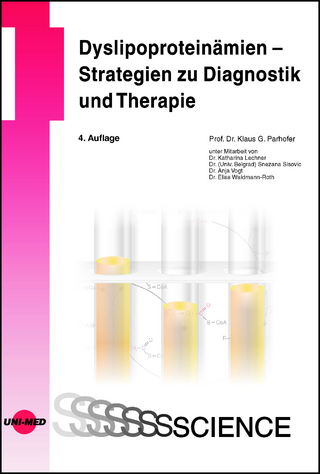
Stress
MIT Press (Verlag)
978-0-262-19320-7 (ISBN)
- Titel ist leider vergriffen;
keine Neuauflage - Artikel merken
Looking beyond the relationships between stress and physical illness, this book suggests that stress and stress-related hormones can also endanger the brain. Strategies to reduce stress and methods to protect neurons from further damage are proposed, and the relevance for humans of the animal research findings are clearly delineated. Sapolsky provides a review of the data on glucocorticoids, the adrenal steroid hormones (hydrocortisone or cortisol in humans) that are released during stress. Excessive exposure to these hormones can damage the brain and make neurons more vulnerable to neurological insults. The findings he reports and ideas he synthesizes may have profound implications for understanding brain aging and resistance of the brain to the damaging effects of strokes, seizures, and possibly Alzheimer's disease. In part 1 Sapolsky focuses on how the failure of glucocorticoid regulation and subsequent excessive secretion combine to cause a complex cascade of degeneration in the brain during aging. In part 2 he addresses the implications of glucocorticoid neurotoxicity for neurology.
Each chapter includes a summary of the major points discussed as well as a capsule review of information from the previous chapters.
Part 1 The glucocorticoid cascade hypothesis: the stress-response and the emergence of stress-related disease; an introduction to the adrenocortical axis; glucocorticoid concentrations in the aged rat - a problem of hypersecretion; the problem of receptor loss; the hippocampus as a mediator of glucocorticoid feedback regulation; glucocorticoid neurotoxicity. Part 2 How does a neuron die?: glucocorticoids endanger hippocampal neurons; a brief interlude - programmed cell death; metabolic chaos 1 - the mediators of necrotic neuronal injury, metabolic chaos 2 - the role of energy failure in necrotic neuronal injury; how do glucocorticoids endanger the hippocampal neuron?. Part 3 How depressing is all of this?: individual differences and adrenocortical function - why do some individuals secrete more glucocorticoids than others?; interventions at the time of neurological insults; is this relevant to the human?
| Erscheint lt. Verlag | 2.11.1992 |
|---|---|
| Zusatzinfo | 60 |
| Verlagsort | Cambridge, Mass. |
| Sprache | englisch |
| Maße | 258 x 186 mm |
| Gewicht | 1180 g |
| Themenwelt | Medizin / Pharmazie ► Medizinische Fachgebiete ► Geriatrie |
| Medizinische Fachgebiete ► Innere Medizin ► Endokrinologie | |
| Medizin / Pharmazie ► Medizinische Fachgebiete ► Neurologie | |
| Naturwissenschaften ► Biologie ► Humanbiologie | |
| Naturwissenschaften ► Biologie ► Zoologie | |
| ISBN-10 | 0-262-19320-5 / 0262193205 |
| ISBN-13 | 978-0-262-19320-7 / 9780262193207 |
| Zustand | Neuware |
| Haben Sie eine Frage zum Produkt? |
aus dem Bereich


